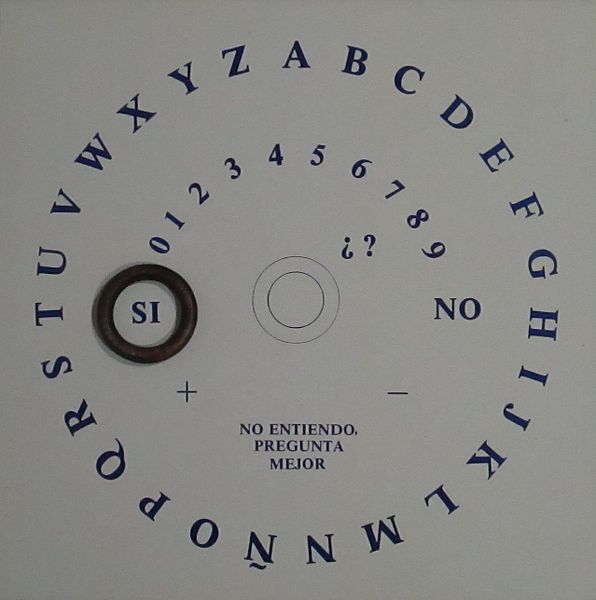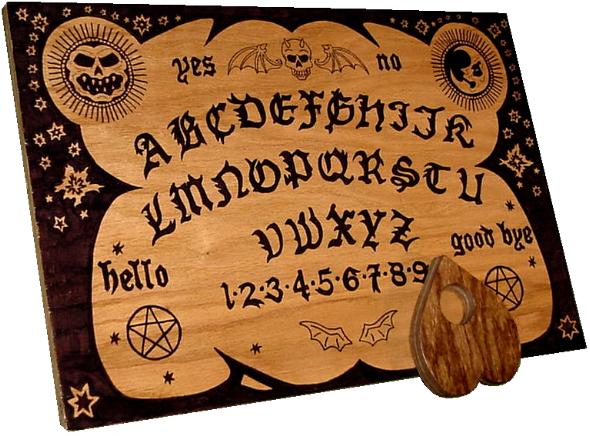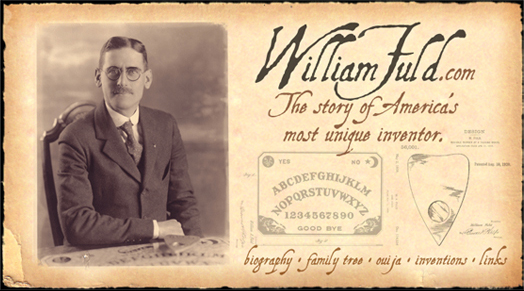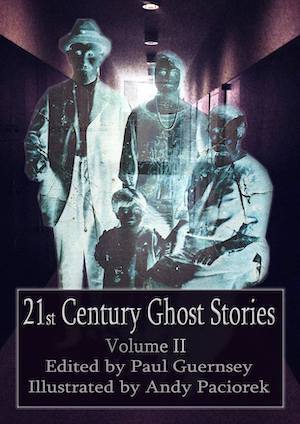by Editor
on November 17, 2014

Ouija Boards Produce Uncanny Results In Many Languages. Photo: Vetranio
How Do Ouija Boards Work?
Ouija has been studied in scientific laboratories, and scientists are in agreement with spiritualists that these “talking boards” can sometimes produce some uncanny results. Where researchers part company with the true believers is on the explanation. Rather than crediting spirits, the men and women in the white coats attribute the eerie messages, predictions, and other communications emanating from Ouija boards to the subconscious minds of the people who use them.
Specifically, scientists think that—at least in situations where nobody is intentionally moving the Ouija board planchette—a neurological phenomenon called the ideomotor effect, or ideomotor response, is responsible for all those eerie Ouija messages that make otherwise inexplicable sense. First identified in the mid-1800s, the ideomotor effect involves involuntary muscular reactions triggered by any of the unconscious parts of the brain. Examples would include people jumping when startled, talking in their sleep, spontaneously crying during a sad movie, or automatically extending their arms during a fall. According to the ideomotor Ouija board hypothesis, the subconscious mind or minds of one or more of the participants cause nearly imperceptible muscular movements that make the planchette slide about the board, answering questions and spelling out information. [continue reading…]
by Editor
on November 8, 2014

An English Ouija Board
It’s About How The Ouija Board Got A U.S. Patent
Of course there are thousands of strange tales concerning secrets, disclosures, and accurate predictions revealed during sessions with Ouija boards. But according to Ouija board historian Robert Murch, perhaps none has ever been stranger—or at least, more consequential—than an 1891 Ouija seance that took place at the U.S. Patent Office in Washington, D.C.
In an interview with Smithsonian, Murch said that shortly after deciding to manufacture Ouija boards in the early 1890s, the game’s original investors found themselves in something of a bind. In order to stave off competition from Ouija board imitators, their company badly needed a U.S. patent on the product. However, in order to qualify for a patent, a “device” needed to be proven to work . . . and proving that Ouija “worked” in any practical sense seemed impossibly problematic. [continue reading…]
by Editor
on October 25, 2014
The Ouija Movie: An Enjoyable Scream For Halloween
A haunted house where mysterious deaths have occurred. An old, wooden Ouija board that turns up in an attic. A prolonged electric-power outage. A group of curious teenagers who seem to lack a strong sense of self-preservation. What could possibly go wrong?
Sure, Ouija, released just a week before Halloween, is fairly standard horror-flick fare. For one thing, it is reliably punctuated with jump-scares that produce much of their shock though a sudden blast of noise or music in the reverberating vastness of the movie theater. These are usually nowhere near as effective during a cozier living-room screening. [continue reading…]
by Editor
on September 25, 2014

Though William Fuld Did Not Invent The Ouija Board He Was The Marketing Mastermind Behind The Game’s Popularity. Photo: Courtesy, WilliamFuld.com
Did The Ouija Board Cause William Fuld’s Death?
William Fuld did not invent the Ouija board; that credit belongs to Charles Kennard, another Baltimore businessman who came up with the idea of commercializing the “spirit board,” a previously homemade divination tool or toy used by spiritualists in the late 1800s. Nor did Fuld name the Ouija board. In fact, the Ouija board apparently named itself.
However, Fuld was the great entrepreneur who took control of Kennard’s company in 1892, the year after the Ouija business started, and ran it for three and a half decades. In the interim, Fuld successfully promoted his talking board, popularizing it until it became a bonafide international craze. [continue reading…]




